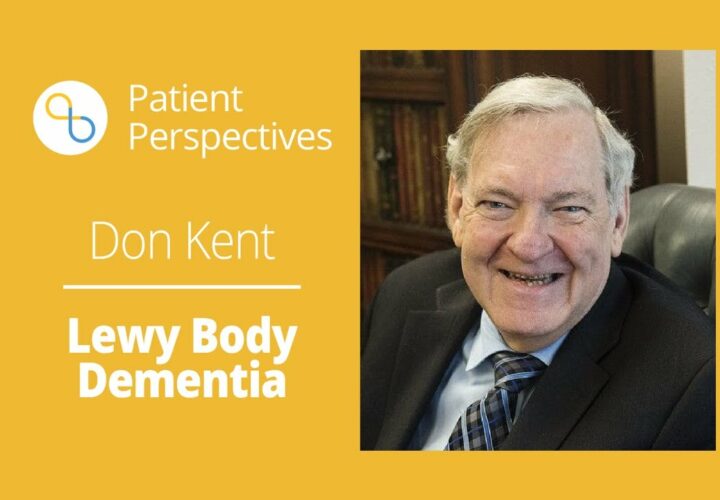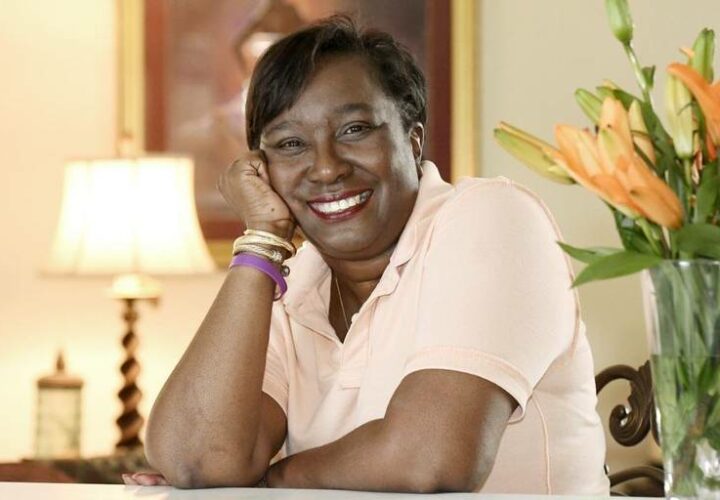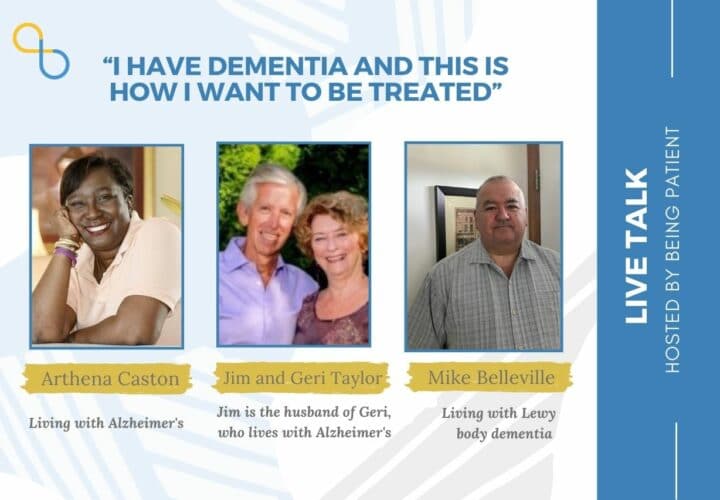Being Patient Editor in Chief Deborah Kan reflects on her experience at a recent Yale Healthcare Conference — and on the power of patient and caregiver stories.
I was recently asked to speak at the 2022 Yale Healthcare Conference focused on patient advocacy. It was an honor to be invited to the conference, run by students from Yale’s schools of management, business and public health. The theme of this year’s conference was “Humanizing Healthcare with Patient-centric Innovation.” I love the fact that we are seeing so many more patient initiatives, and I do believe that the patient (and caregiver!) voice will transform the future of healthcare.
I used the platform at Yale to relay the powerful stories that you, our community, have shared with Being Patient. I spoke about Don Kent, who had to see seven different neurologists before finding out that he had Lewy Body dementia; about Gerda Saunders’s decade-long quest to understand what type of dementia she has, and how it felt for Arthena Caston when she sought a doctor’s advice for cognitive issues, and he kept telling her it was “just menopause.”
I told them about Pam Montana, who used to run an international sales team for Intel and realized in hindsight that she couldn’t focus the way she used to — long before she ever got a diagnosis of early onset. And I told them about our own Phil Gutis, once a New York Times reporter, now a Being Patient contributor — Alzheimer’s hasn’t robbed the part of his brain that allows him to write.
We share these stories in our Patient Perspectives series — intimate, first-person perspectives on life with Alzheimer’s and other dementias, that can not only offer guidance and fellowship to others embarking on this journey, but, I believe whole-heartedly, a trove of virtually untapped and invaluable insight into the disease to researchers, healthcare providers, and the developers of treatments for Alzheimer’s and dementia.
We also share these stories in our library of VOICES essays — reader-submitted essays from caregivers and other people whose lives have been touched by Alzheimer’s or other dementias. We ask VOICES contributors to offer concrete advice on a specific topic related to their experience as caregivers or those who have dementia, and that the advice focuses on the theme, “What I Wish I Knew.” Previous articles have focused on topics such as managing difficult behaviors, taking a trip with a loved one who has dementia, communicating with a loved one who has dementia, discussing dementia with children, and looking after yourself while caregiving. If you have a story like this to share — with wisdom that might help someone else who could be stepping into your shoes for the first time — have a look at some of these past essays, and find our submission guidelines here.
These are stories we need people to hear, because I believe their impact has the potential to be transformative. There are so many of you who share similar experiences — not only with misdiagnosis, but also about how you stay focused on living, not dying, with Alzheimer’s. We have the power to collectively rewrite the dialogue, not only on how experts see dementia, but also on how we all — as individuals, families, and as a society — navigate it.
I truly hope you will still keep sharing these stories with us. They have more power than you can imagine.





